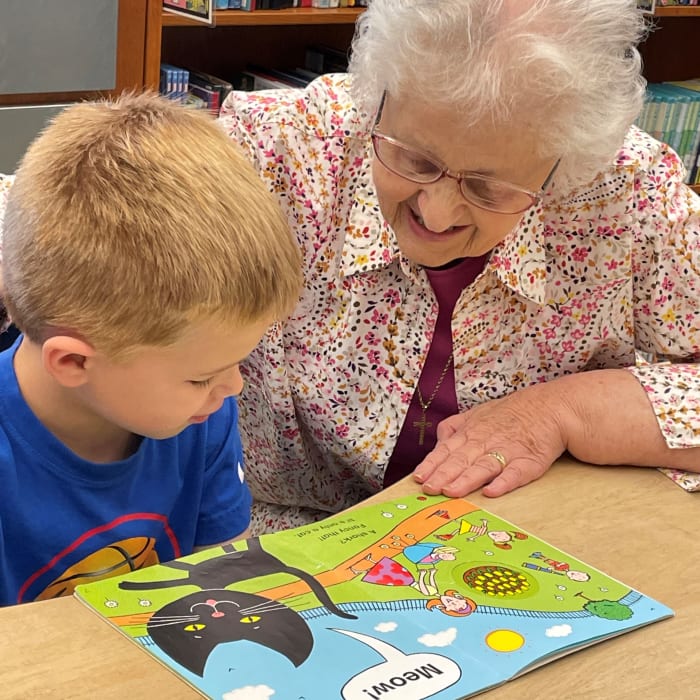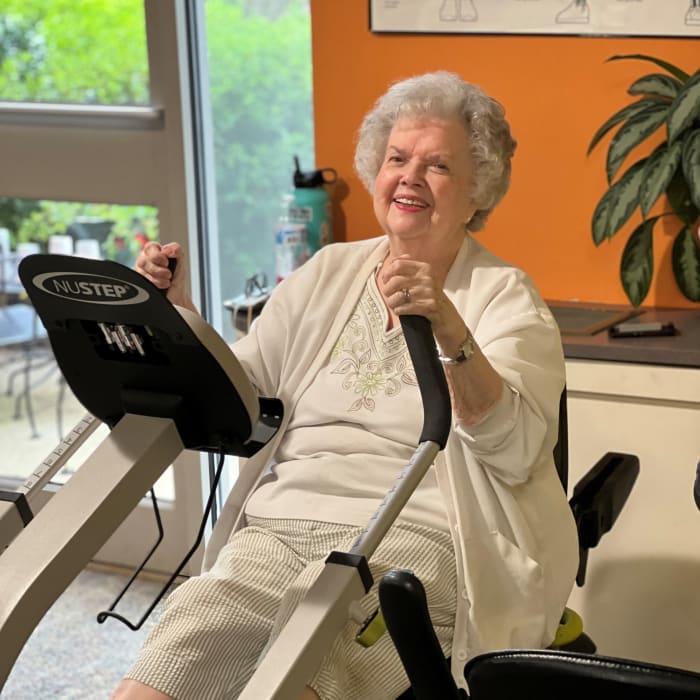Starting the conversation
5 tips for talking with your loved one about making a move
If the prospect of having to speak with an aging parent or loved one about moving into senior living conjures up a range of emotions, you’re not alone.
Ensure alignment
Before speaking with your loved one about moving into a senior living community, have the conversation with siblings or other relatives. Resolve any disagreements among yourselves so you can present a united front to your loved one.
Do your research
Start looking at the options available and think about how close or far they will be from family members and friends who will visit most or need to be available in case of an emergency. Compare the costs, services, levels of care and amenities offered at different communities. During your search, consider the culture and social atmosphere at each location. You’ll want to find a community where your loved one will feel comfortable — as well as one that best suits their needs.
Know what types of benefits your loved one has or is entitled to, including VA benefits, long-term care insurance or Medicaid. Does your loved one need to adjust their investments to access funds? Will an additional financial commitment from family members be necessary to supplement your loved one’s resources? You may need to consult a tax advisor or other financial professional to review assets and estate-planning strategies.
Having this knowledge at your fingertips can help you answer their questions and counter any objections they may have.
Be open and honest
While there’s no one-size-fits all way for families to start the conversation, here are some helpful tips.
1. Have conversations with your loved one before their situation becomes critical. Explain that you want to honor their wishes during this phase of their life and would like to know their views about future care needs and living arrangements.
2. Express your feelings of concern. Mention circumstances, such as the current pandemic that worry you. It’s OK to let your loved one know how you’re feeling: “I don’t want you to feel isolated and alone.” Or, “how will you run errands or access appropriate health care?”
3. Identify any hidden issues about making a move. Many older adults consider such a move as a threat to their independence. And thoughts of having to go through a lifetime of belongings, downsizing and starting over can be overwhelming.
4. Examine potential outcomes. Discuss the “what-ifs”? What would happen if their spouse dies? What if your loved one were to fall, and no one was around to help?
5. Get the facts about your loved one’s health. It’s important for everyone to understand how progressive or chronic conditions like dementia, Alzheimer’s disease, Parkinson’s disease, diabetes or congestive heart failure may affect their ability to remain independent. Discussing potential health problems before they arise enables your loved one to be an active participant in their care versus having care decisions made for them in the event of a crisis.
What’s next?
Schedule time for on-site or virtual visits, interview staff and try to meet other residents to see which communities are a good fit for everyone.
Keeping your loved one involved in the decision-making process can help ease their transition into a senior living community. When they know that you have their best interests at heart, it can help strengthen the bonds between you.






